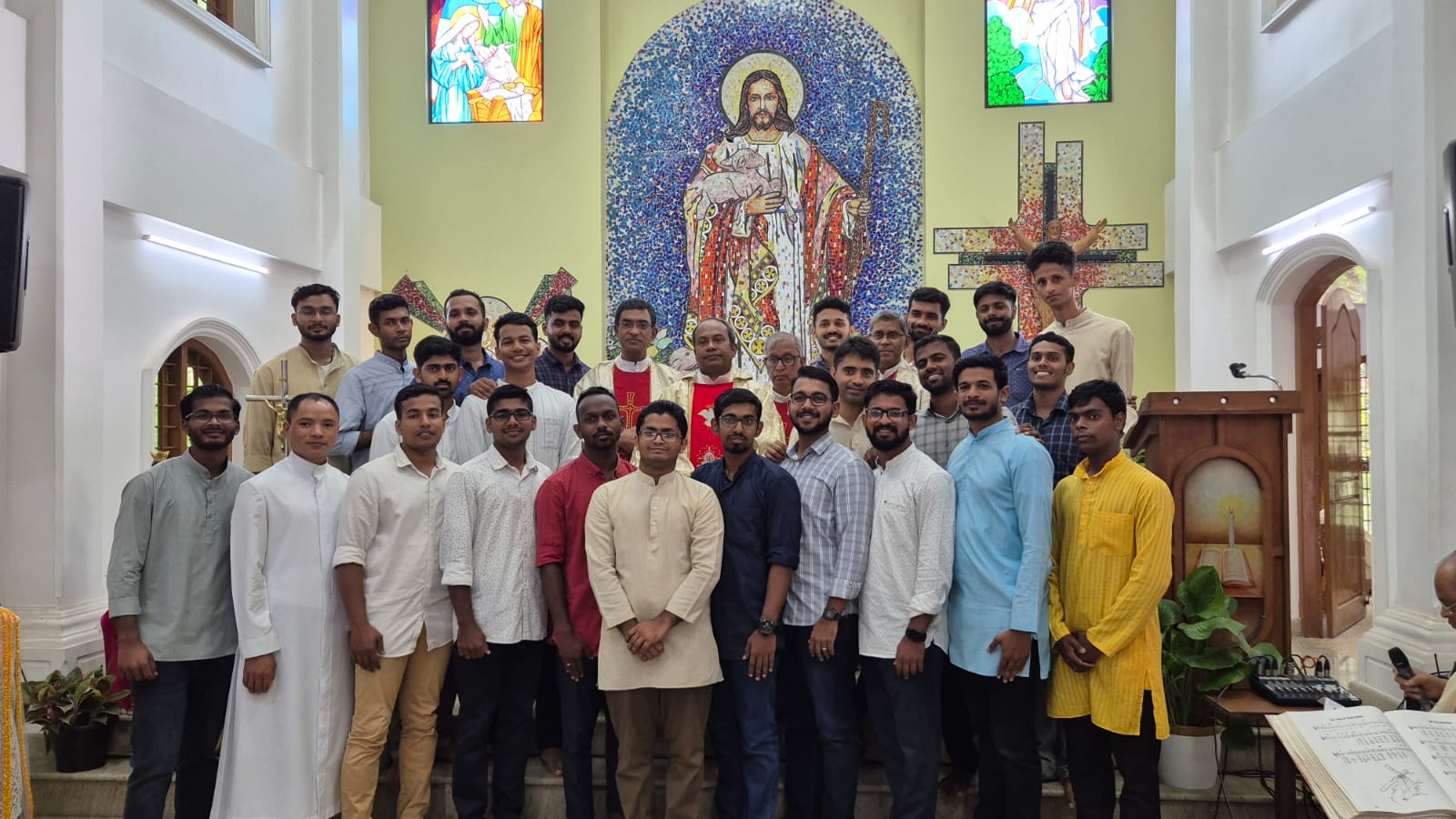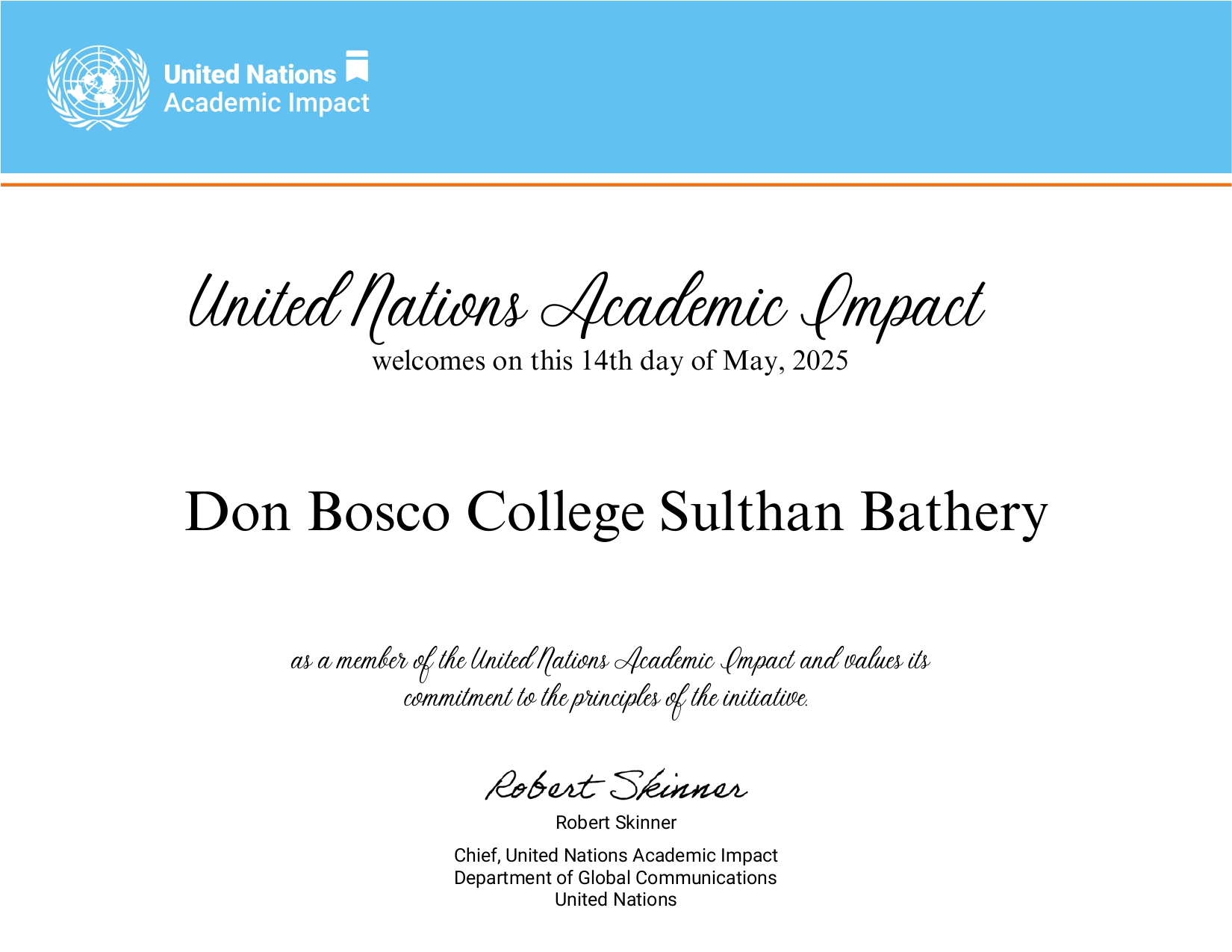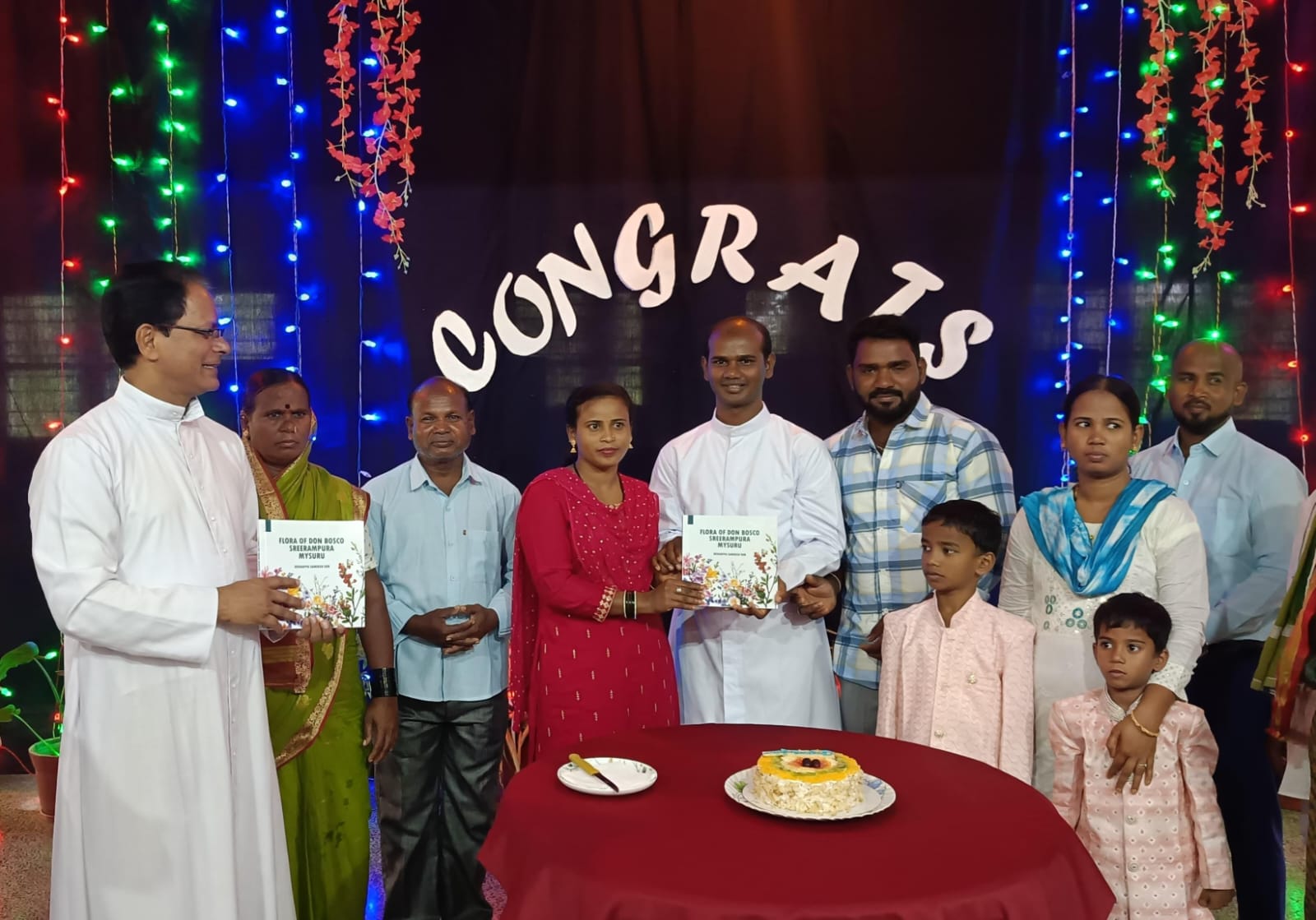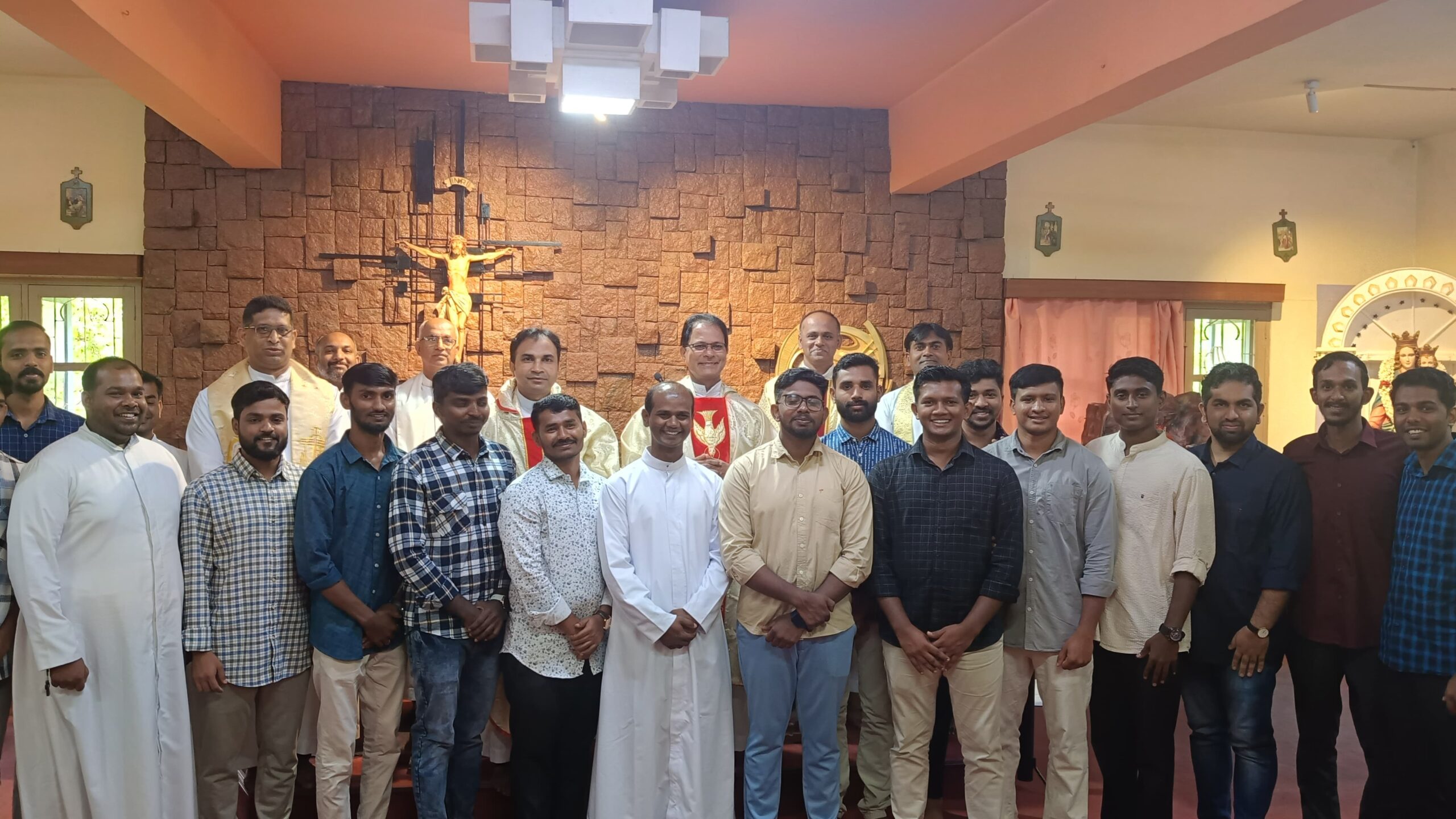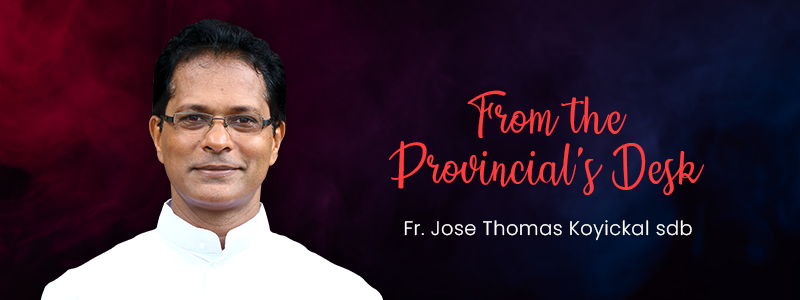
THE BIRTH OF JESUS, THE PRINCE OF PEACE
“For a child is be born to us, a son is be given to us; And the government will rest on His shoulders; And His name will be called Wonderful Counsellor, Mighty God, Eternal Father, Prince of Peace” (Isaiah 9:6).
One of the fundamental themes of the Gospel, and particularly the message of Christmas, is peace. The angels sang: “Peace to all people of good will.” In a world where millions are suffering due to war and violence, the birth of Jesus is a reminder that the path to lasting peace is not through conflict and confrontation, but through dialogue, reconciliation, and love. It is true that our society is divided and our lives are often fragmented. But it is into this existential reality that God takes birth, offering us the possibility to bridge the gap, heal our woundedness and mend our brokenness.
Jesus has the messianic title “Prince of Peace” (Is. 9:6) and he is called by St. Paul “our peace” (Eph. 2:14). Jesus proclaimed blessed the peacemakers, telling them that they were so like unto God that they could be called God’s sons (Matt. 5:9). At the Last Supper, he gave the disciples the gift of his peace. His first gift to his disciples after he rose from the dead was the gift of peace (cf. John 14:27; 20:19). St. Paul teaches that God’s peace in Jesus surpasses “all understanding” (Phil. 4:7).
The clarion call of Christmas is a call for peace among families, communities, nations, and peoples. It is a peace offered to the broken world when Jesus enters the corrupted world and brings order to chaos. It is the restoration of the brokenness of creation in Christ. In Christ, “all things hold together” (Colossians 1:17). He is our peace (Ephesians 2:14). Jesus’ birth blesses creation with peace. His peace penetrates every fabric of existence. For us humans, the Lord’s birth bestows peace within our souls. The peace that Jesus gives, the world cannot give (John 14:27). This peace within us inspires us to become messengers of peace wherever we find ourselves.
It is important that we pray for world peace. But it is even more important that we look within ourselves during this Christmas season and ask: “Am I a person of peace? Do I promote peace? And how can I become an agent of peace?” Pacem in Terris (Peace on Earth), the famous encyclical of Pope John XXIII, offers a beautiful reflection on peace. It speaks of four pillars for world peace: truth, justice, love, and freedom.
1. Practice Truth to Self and Others
It is interesting to note that Pope John XXIII saw the practice of truth as the first pillar of peace. This is because one who is truthful does not wish to wrong others. Truth can be morally defined as the conformity of inward disposition with external behavior. In other words, there is no duplicity in the one who is truthful. This is why God is Truth, for in Him there is no duplicity. The opposite is also often true: violence stems from hearts that hide facts, manipulate, and are egoistic. This holds true for individuals, societies, and nations alike. Where there is truth, there is tolerance and peace. Often, the world associates the expression of truth with arrogance. When
Benedict XVI titled one of his books Truth and Tolerance, it reflected a genuine conviction he held and often spoke about – that truth is opposed to violence.
Being truthful, we are called to build bridges – between individuals, and among people of different backgrounds and cultures. This begins with being truthful to ourselves. Truth, when found, requires humble acceptance. Therefore, challenging ourselves to overcome our prejudices is a necessary step in accepting and witnessing to truth. However, being truthful isn’t always comfortable. It will confront us, question our motives, and challenge our behavior. Yet, it has the power to lead us to a higher state of reality if we embrace it. The only way to lasting peace is by embracing truth.
2. Practice Justice for One and All
The second pillar of peace, as portrayed in Pacem in Terris, is the practice of justice. The Holy Father reminds us that to have lasting peace, we must practice justice. Therefore, it is important for us to be people who live justly and advocate for justice. “Do unto others as you would have them do unto you” is a tested and reliable ethical principle. Jesus makes it more personal: “Whatever you do to the least of my brethren, that you do unto me” (Matthew 25:40).
Augustine’s classic The City of God provides a more complete way of talking about peace between people and nations. Augustine writes: pax omnium rerum tranquillitas ordinis (peace is the result of the tranquility of order). Such tranquility comes when justice reigns. It is important that unjust structures and oppressive systems are removed in order to establish lasting peace. This has been the constant slogan since Vatican II, especially among Liberation Theologians. As the Prophet Micah reminds us: “He has shown you, O mortal, what is good. And what does the Lord require of you? To act justly and to love mercy and to walk humbly with your God” (Micah 6:8). We know how Pope Francis is vocal in speaking about establishing a just society. He is not afraid to confront leaders or speak “truth to power” when it concerns justice, especially regarding migrants, children, the elderly, and the poor.
To see the other not as a stumbling block to our ambitions but as someone whose rights are as equal as ours is justice. It is sometimes true that while we are quick to speak or comment on social media regarding injustices done in another part of the globe, we are oblivious or tacitly neglecting the implementation of justice within our own ‘household’. The practice of justice in our everyday life is promoting peace.
3. Love More
Love is the third of the Holy Father’s four pillars of peace. People should be animated by a love that makes them feel the need for others and compels them to share what they have in charity and love. What can truly bring peace is when people are able to go beyond legal requirements. Pope Benedict addressed this rightly when he said in Caritas in Veritate that although love cannot be practiced without justice, charity or love must go beyond justice. Thus, the love that promotes enduring peace first meets the demands of justice and then goes beyond legality. It is about offering something “more.”
In this context, the poor deserve special consideration. This inspires us to be more intentional in seeking out the poor among us and those who deserve special care. Love is manifested when we do not wait for them to come to us but instead reach out to show them our love and care. Lasting peace will be the outcome of such a society, where the least are always cared for.
4. Embrace Freedom and Responsibility
Finally, Pope John XXIII invites us to protect and respect freedom in order to foster peace. We cannot foster peace without respecting the freedom of others. Peace is built on respect. It must be noted that even God does not force His way through; He respects our freedom. Both freedom of conscience and freedom from intimidation are important.
Human beings are created free and must remain so. Any attempt to curb that freedom,
especially through force or violence, is unacceptable. Attempts to establish peace through restrictions often produce the opposite result. It is when people respond in freedom that serenity and lasting peace prevail.
At Christmas, we worship the tender child of Bethlehem. He was not born in Caesar’s palace, the symbol of power and aggression, but in a manger. Jesus did not instill fear in anyone; He was the embodiment of kindness and mercy. He invited people to follow Him but did not force anyone. He is the master who has prepared the banquet but allows those invited to make deliberate choices to partake of it. He is the Prince of Peace, and His kingdom is one of “righteousness, peace, and joy in the Holy Spirit” (Rom. 14:17). When our communities are places of respect, freedom, and communication, peace and serenity will be the result.
Finally, though we speak of the four pillars of peace and our efforts to achieve it, it is also important to recognize that peace is a gift from God. Besides, it has an eschatological dimension. True peace will only be fully established when Christ brings about the Kingdom once and for all at the end of time. This is the eschatological peace, when all things will be renewed in Christ and “every knee will bow… and every tongue confess to the glory of God the Father that Jesus Christ is Lord” (Phil. 2:10-11). Meanwhile, we strive to be agents of this Kingdom and protagonists of the message of peace. We recognize that the words from Isaiah 2:4, engraved in front of the United Nations Headquarters in New York, “They shall beat their swords into ploughshares and their spears into pruning hooks; one nation shall not lift up sword against another, neither shall they learn war anymore” (Isaiah 2:4), is still a distant reality. However, we are neither pessimists nor disheartened in the midst of conflicts and wars, for God’s Kingdom is His work, and we all cooperate to do our part.
Dear Confreres, let us take up the challenge of becoming “prophets of hope” and “messengers of peace” this Christmas season and throughout the Jubilee Year. Putting Christ back at the centre means that we are a people who Practice Truth, Act Justly, Love Tenderly, and Respect Freedom. This is our mission and let us embrace it with joy.
Wish you all a holy season of Advent, happy feast of the Immaculate Conception and a Blessed Christmas.
-
LENT: A JOUR...
29 March 2025 -
“ANCHORED IN...
14 February 2025 -
JUBILEE 2025...
08 February 2025 -
THE BIRTH OF...
08 January 2025 -
MONTH OF NOV...
13 November 2024 -
REDISCOVERIN...
13 October 2024 -
SYNODALITY A...
13 September 2024 -
INDEPENDENCE...
04 August 2024 -
THE SACRED H...
04 August 2024 -
THE SPIRITUA...
04 August 2024




